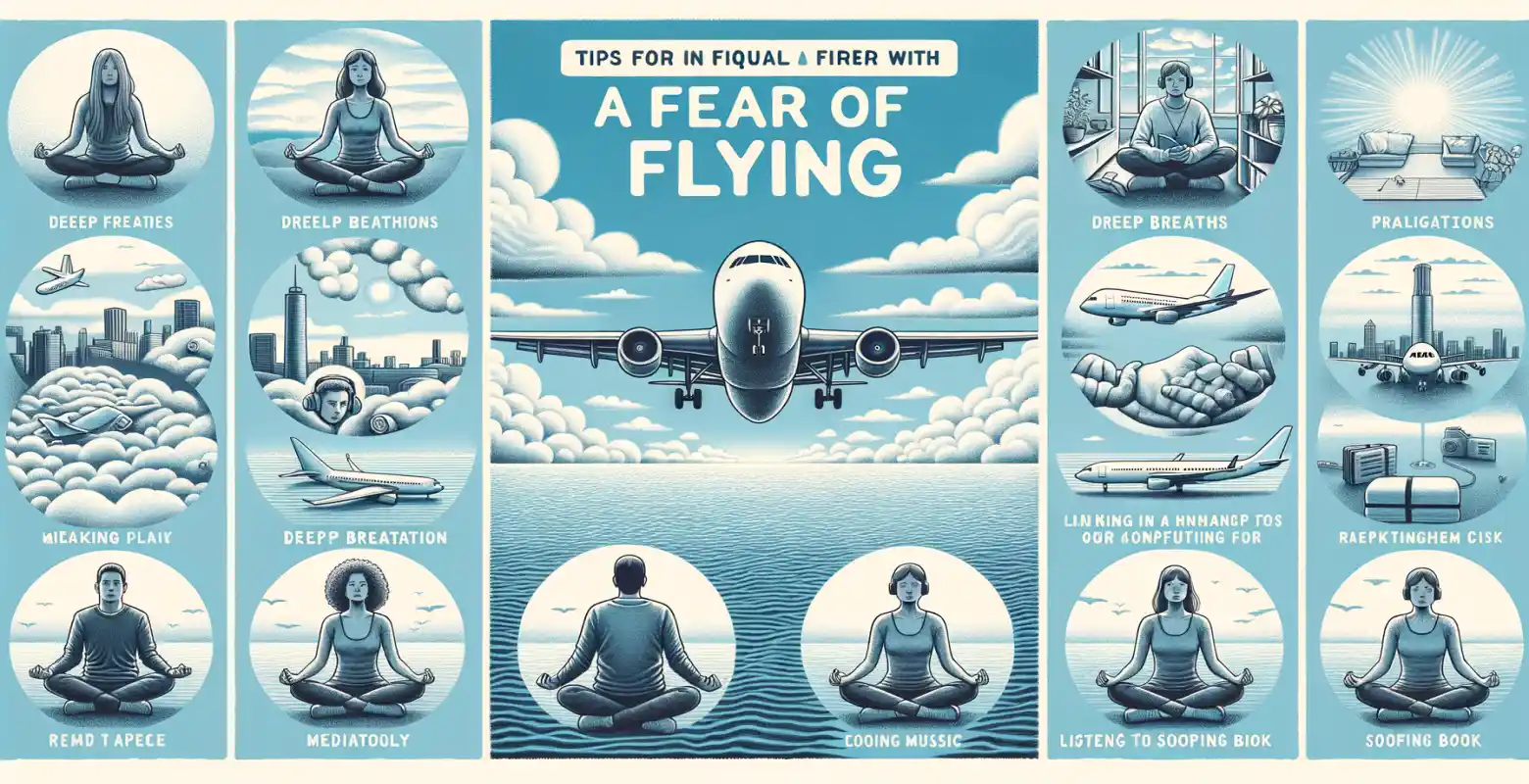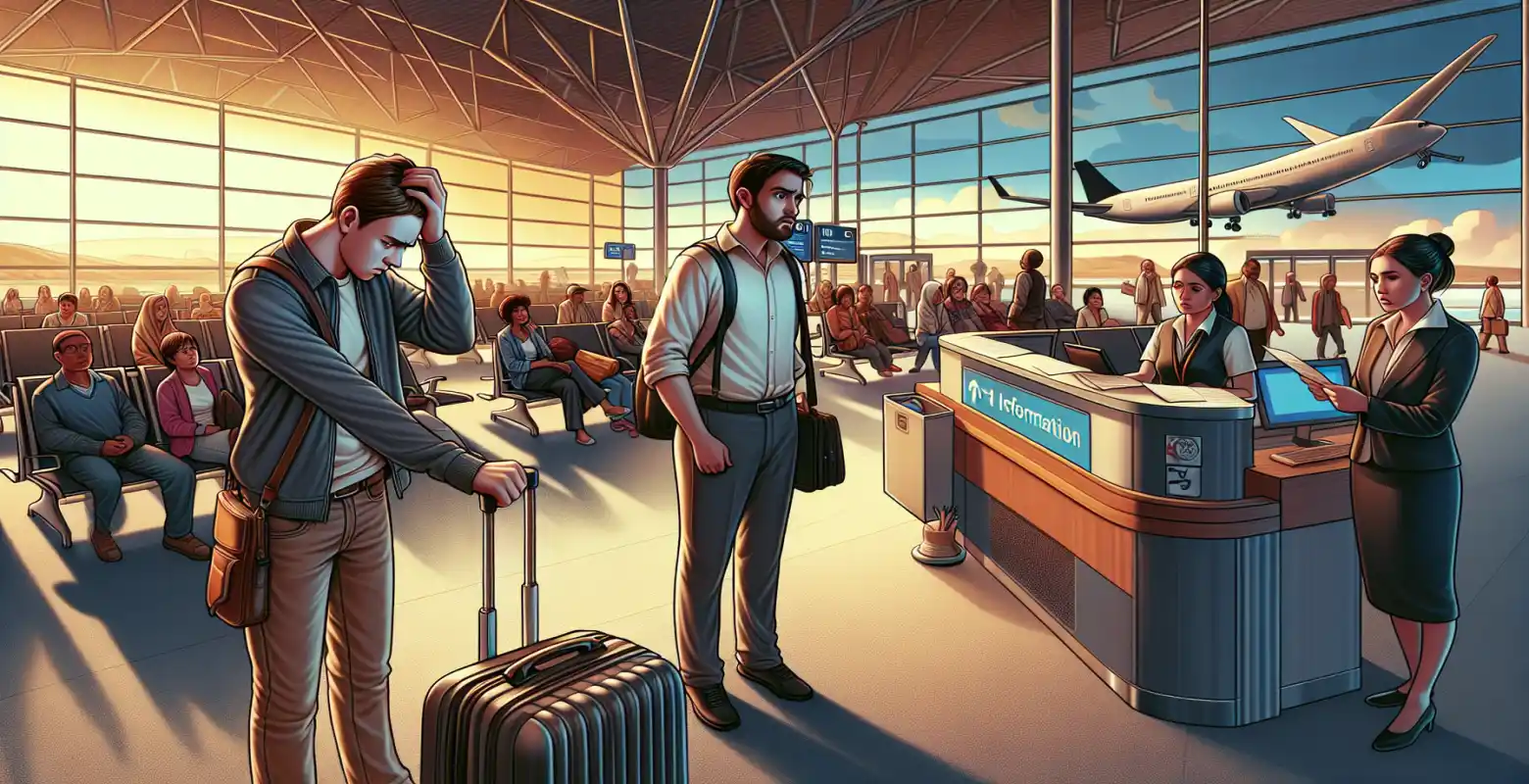Tips for people with a fear of flying
Introduction
Fear of flying is a common issue that many people around the world struggle with. Although flying is one of the safest modes of transportation, for some individuals, traveling by plane is associated with immense stress and anxiety. Understanding the reasons behind this fear and learning coping strategies can significantly improve the comfort of the journey. In this article, we will discuss various aspects related to the fear of flying, offering practical advice and support for those who want to overcome their fears.
Causes of the Fear of Flying
Fear of flying, also known as aviophobia, can have various origins. For some individuals, it may be the fear of a technical failure or disaster, while others may fear losing control or experiencing a panic attack on board. Often, this fear is related to other phobias, such as claustrophobia (fear of enclosed spaces) or acrophobia (fear of heights).
It is also worth mentioning that the media often highlights air disasters, which can further exacerbate worries. Although air accidents are extremely rare, they tend to attract attention due to their spectacular nature and potential consequences.
How to Prepare for a Flight?
Preparing for a flight can significantly reduce the level of stress and fear. Here are a few steps to consider:
Gain KnowledgeOne of the best ways to alleviate fear is to acquire knowledge about how airplanes operate and safety procedures. Understanding how avionic systems work, why turbulence is normal, and what emergency procedures are in place can help reduce anxiety.
Choose the Right SeatFor many people, the choice of seat on the plane is crucial. If the fear of flying is related to claustrophobia, consider selecting a seat near the aisle, which provides more space. For those who fear turbulence, seats over the wings are the calmest.
Mentally Prepare YourselfMeditation, breathing exercises, and relaxation techniques can help in managing the fear of flying. It is also beneficial to invest time in visualizing a calm and safe flight, which can help build a positive mindset.
Strategies for Coping with Fear During a Flight
There are many strategies that can help in managing fear during a flight:
Focus on BreathingConcentrating on deep, calm breathing can contribute to reducing stress levels. The 4-7-8 technique, which involves inhaling for 4 seconds, holding the breath for 7 seconds, and exhaling for 8 seconds, is particularly effective.
Engage Your MindDuring the flight, it is helpful to distract yourself from fear by focusing on something else. This could be reading a book, watching a movie, listening to music, or playing a game on your phone. Choose something that requires concentration to prevent thoughts from revolving around fear.
Avoid Caffeine and AlcoholWhile alcohol may seem to help with relaxation, it can actually intensify anxiety symptoms. Similarly, caffeine can increase feelings of unease, so it's advisable to avoid them before and during the flight.
Medical and Therapeutic Support
For some individuals, coping with the fear of flying on their own may be too challenging and may require the support of professionals. There are several options that can be helpful:
Cognitive-Behavioral Therapy (CBT)CBT is one of the most effective forms of therapy for individuals with a fear of flying. It helps identify and change negative thoughts and beliefs related to flying, as well as teaches coping techniques for fear.
Anti-Anxiety MedicationsIn some cases, a doctor may recommend the use of anti-anxiety medications. These are typically taken shortly before and during the flight to reduce anxiety symptoms. It is important for their use to be supervised by a specialist.
The Future of Air Travel and Fear of Flying
As aviation technology advances, new possibilities for reducing the fear of flying are emerging. Modern airplanes are becoming increasingly technologically advanced, enhancing the safety and comfort of passengers. Additionally, airlines are increasingly introducing support programs for individuals with a fear of flying, offering courses and training to help understand and manage this fear.
Virtual Reality (VR) is also becoming a more popular tool in treating the fear of flying, allowing individuals to experience a flight simulation in a controlled environment, aiding in gradually acclimating to the situation.
Summary
Fear of flying is an issue that affects millions of people worldwide, but with the right tools and support, it can be effectively managed. Understanding the reasons behind this fear, preparing for the flight, employing coping strategies for fear, and seeking professional help are key steps towards overcoming aviophobia. As technological advancements progress and awareness of mental health grows, more individuals will be able to enjoy air travel without concerns.
If you struggle with a fear of flying, consider implementing some of the strategies presented here and do not hesitate to seek professional help if needed. Air travel can be not only safe but also full of positive experiences that enrich our lives.






Number of comments: 0